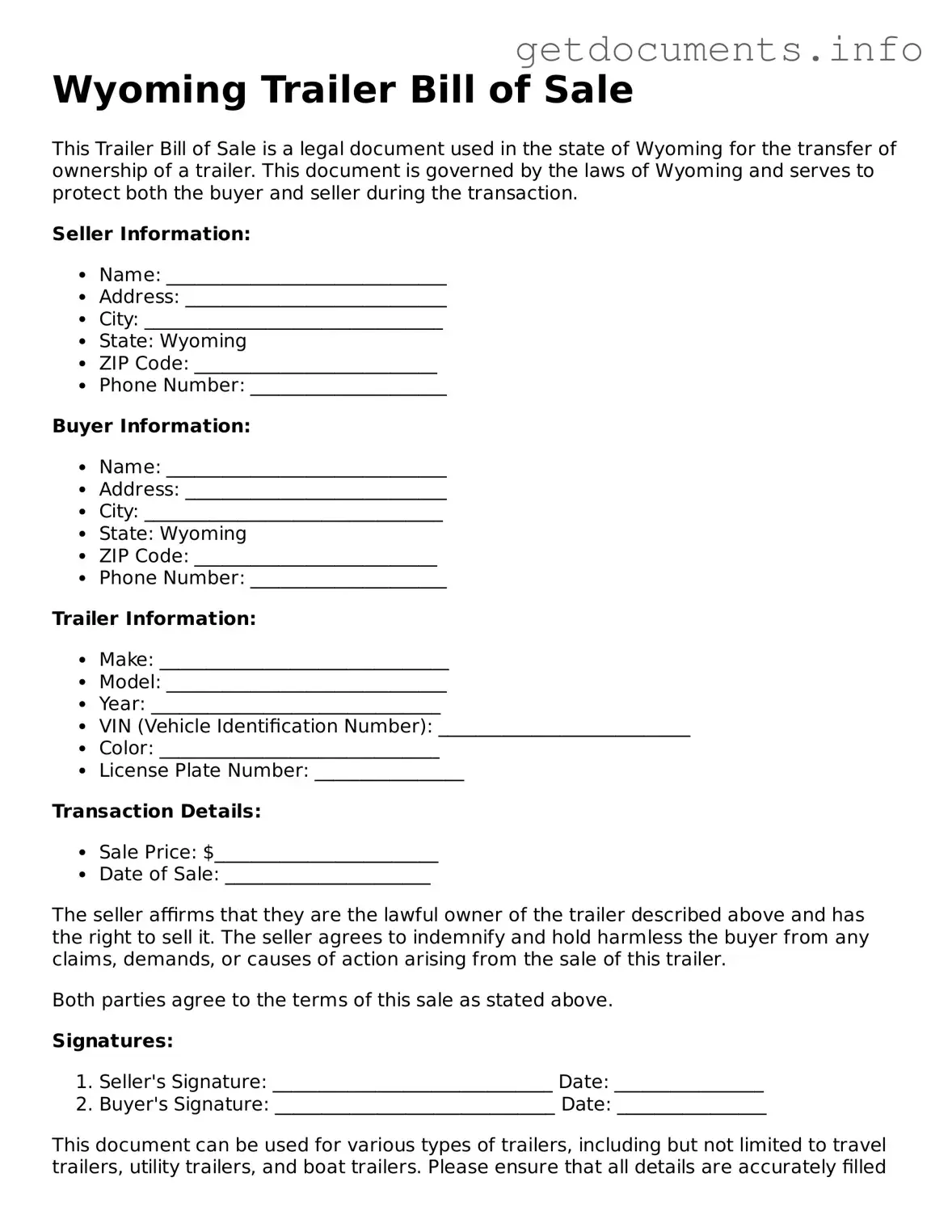Free Trailer Bill of Sale Template for Wyoming
The Wyoming Trailer Bill of Sale form is a crucial document used to record the sale and transfer of ownership of a trailer in the state of Wyoming. This form not only provides essential details about the transaction but also protects both the buyer and seller by documenting the agreement. For those looking to sell or purchase a trailer, completing this form accurately is an important step—start filling it out by clicking the button below.
Access Trailer Bill of Sale Editor

Free Trailer Bill of Sale Template for Wyoming
Access Trailer Bill of Sale Editor
Got places to be? Complete the form fast
Fill out Trailer Bill of Sale online and avoid printing or scanning.
Access Trailer Bill of Sale Editor
or
⇩ PDF File
